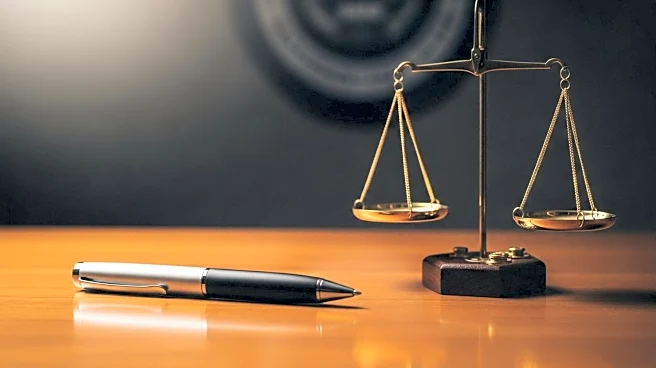What's Happening?
President Biden's recent mass pardons, particularly for inmates jailed for crack cocaine offenses, have sparked internal concerns within the White House and the Department of Justice. Emails reveal that Biden orally approved the commutations on January 11, but his autopen signature was not affixed until January 17, raising questions about the oversight and control of the process. The debate over the inclusion criteria for the pardons and the transparency of the process has been a point of contention, with some suggesting that Biden's staff played a significant role in the decision-making.
Why It's Important?
The use of autopen for such significant legal actions raises questions about the transparency and accountability of the presidential pardon process. Critics argue that the lack of direct oversight by President Biden could undermine public trust in the administration's commitment to justice reform. The pardons, while aimed at addressing sentencing disparities, have been criticized for potentially including individuals who may not meet the intended criteria, highlighting the need for clear guidelines and oversight in the clemency process.
What's Next?
The House Oversight Committee and the Justice Department are expected to continue reviewing the clemency process to ensure it aligns with legal standards and the president's intentions. The administration may face pressure to clarify the criteria and oversight mechanisms for future pardons to prevent similar controversies.
Beyond the Headlines
The ethical implications of using autopen for presidential pardons could lead to broader discussions about the role of technology in governance and the need for human oversight in critical decision-making processes.










